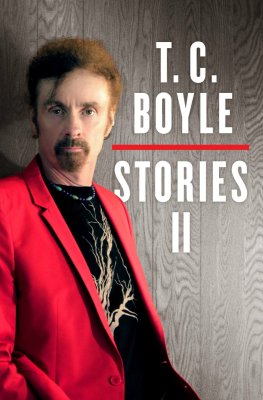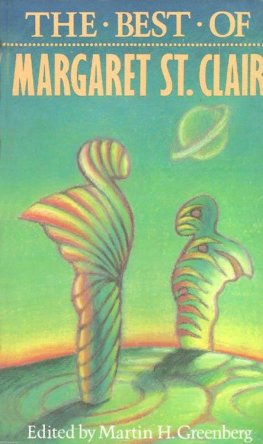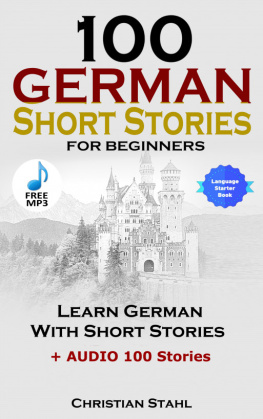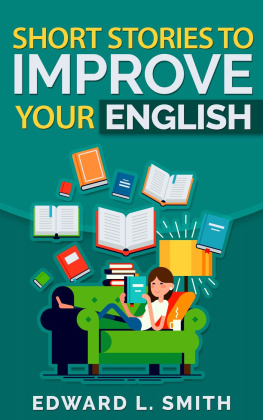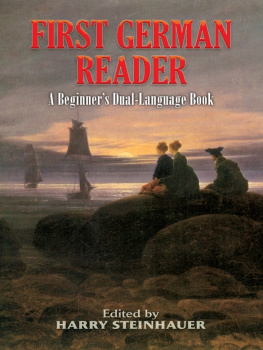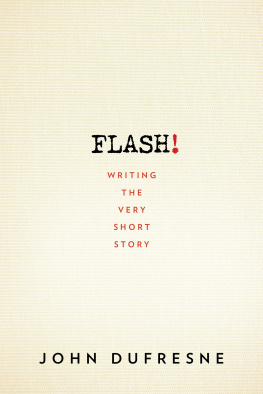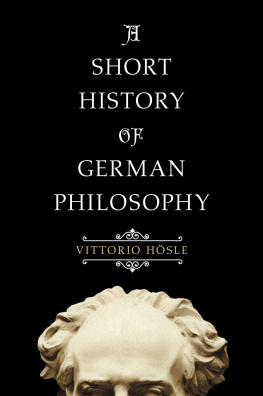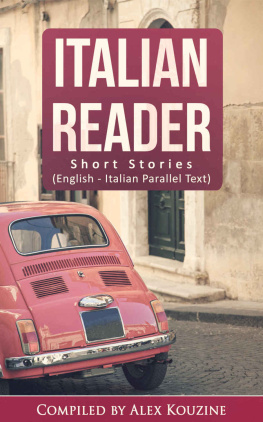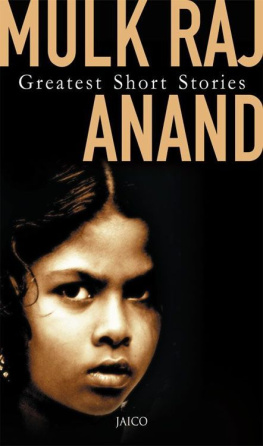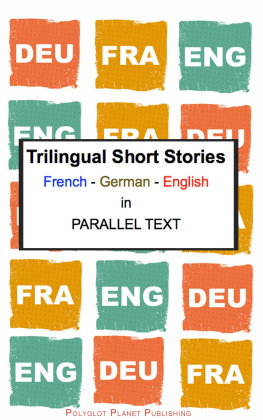GERMAN SHORT STORIES 1
DEUTSCHE KURZGESCHICHTEN 1
Edited byRichardNewnham

PENGUIN BOOKS
PENGUIN BOOKS
Published by the Penguin Group
Penguin Books Ltd, 80 Strand, London WC2R 0RL, England
Penguin Putnam Inc., 375 Hudson Street, New York, New York 10014, USA
Penguin Books Australia Ltd, 250 Camberwell Road, Camberwell, Victoria 3124, Australia
Penguin Books Canada Ltd, 10 Alcorn Avenue, Toronto, Ontario, Canada M4V 3B2
Penguin Books India (P) Ltd, 11 Community Centre, Panchsheel Park, New Delhi 110 017, India
Penguin Books (NZ) Ltd, Cnr Rosedale and Airborne Roads, Albany, Auckland, New Zealand
Penguin Books (South Africa) (Pty) Ltd, 24 Sturdee Avenue, Rosebank 2196, South Africa
Penguin Books Ltd, Registered Offices: 80 Strand, London WC2R 0RL, England
www.penguin.com
First published 1964
Copyright Penguin Books Ltd, 1964
All rights reserved
Except in the United States of America, this book is sold subject to the condition that it shall not, by way of trade or otherwise, be lent, re-sold, hired out, or otherwise circulated without the publishers prior consent in any form of binding or cover other than that in which it is published and without a similar condition including this condition being imposed on the subsequent purchaser
ISBN: 978-0-14-195942-9
INTRODUCTION
T HIS volume of German stories presents eight of the outstanding post-war authors who write or are published in West Germany (two of them are Austrian). No attempt has been made to represent modern writing in all German-speaking countries, nor to draw regional or political distinctions between the literatures of the two Germanies, Austria, and Switzerland, since this would be beyond the scope of a book of so few pages.
Parallel texts are set out primarily with the student in mind. If he has worked conscientiously through grammar and exercises and now wants something more satisfying than processed gobbets, these stories may be just what he needs. Non-linguists, reading the English versions alone, may detect something of the flavour of modern German literature, a sharp and largely bitter one that dates from the end of the Second World War. The stories have been printed in approximate order of difficulty.

The situation of the German writer during the first months of peace may be compared with that of the returned soldier in Heinrich Blls story printed here. Back in his home town he knows no one, has nothing to say, and has few words left that are not linked to painful memories. For more than twelve years German literature had been, if not itself politically tainted, then at best a witness to taint. After the black-listing presidential decree of February 1933, the burning of the books, and the suppression of Jewish authors and publishers, many writers had emigrated either in the literal sense to Switzerland, America, or Moscow, or else had made an inner emigration. Those who continued to write and be published were faced with compromise even on language. As well as perverting thought, Hitlers hacks perverted German prose, a good example being the Fhrers own attack (ironically, on decadent writers) in his speech at the opening of the Haus der Deutschen Kunst a crescendo of repetitions in loan-words and non-words, quite un-German in tone.
The returned writer, then, found an audience too poor to buy books and too sceptical to have much faith in the written word. An official rehabilitation of literature began, but small credit for results is due to the Allied Occupation. The morbid fear of Nazi ghosts, coupled with some remarkably ad hoc exorcism, the censorship, and indeed the whole concept of democratization, struck the young writers (many of them like Borchert openly anti-Fascist) as just another clich. They knew how easily a refuge from responsibility lay behind such words. Something more was needed. The year 1947 saw the adoption of what has become known as the Kahlschlag (clean sweep) policy: a return to honesty of language, based on popular non-literary usage, and to honesty of theme, based on personal experience. Policy is perhaps too solid and formal a word; the centre of this movement, the Gruppe 47, in fact began as (and has since remained) an informal seminar whose aims have never been openly declared and whose members carry no cards. The group was started after the U.S. military government had closed a periodical that had found fault with the Occupation and its attempts at re-education. Since then its influence has been wide; at least three of the present authors have attended its sessions, and the danger that an intellectual lite would become a clique seems to have been avoided.
For many of these writers, the most attractive form has been the short story. The reason for this preference may be that the Kurzgeschichte has no literary pedigree in Germany, and indeed is viewed with mistrust by many critics who favour the more didactic Novelle with its respectable antecedents in nineteenth-century literature. Previously, works shorter than the Novelle had been classed either as Anekdoten (dramatic episodes of a narrative kind one thinks of authors such as Grimmelshausen, Kleist, J. P. Hebel, and Wilhelm Schfer) or as Skizzen (generally plot-less studies in atmosphere: the Swiss Robert Walser wrote many such). The short story is not quite either form, and an uneasy debate on its German possibilities had begun in the twenties and thirties (are we soon to have the Lang-geschichte? asked one theoretician). But in 1945 it seemed perfectly to match the post-war mood of irony, objectivity, and mistrust of the didactic. By an accident, it was the Occupations best gift to German culture; Bender has written:
It exactly hit off the only mood left to us after the war. Following the catastrophe, German literature had to make a fresh start with the short story. Furthermore, our conquerors brought it with them. In the first books and magazines issued under licence were American and English short stories.
Imitations, particularly of Hemingways staccato style, were soon followed by new wine in new bottles. What the German writers have made of their new form can be judged, it is hoped, from the variety of this selection. G AISER and F USSENEGGER both explore the world of private obsession, one whimsically, the other warningly (the love of self-destruction is not limited to Germany). L ETTAU and S CHNURRE are satirists, with very different targets. B ORCHERT and A ICHINGER experiment with form and language while keeping their intelligibility and humanity. B LL and B ENDER , against the same post-war landscape, write of the resumption of life by two quite dissimilar heroes who share the same sense of isolation.

Acknowledgements are due to the following German, Swiss, and British publishers for permission to include German originals or new English translations in this book: for Heinrich Bll to Paul List Verlag, Munich; for Ilse Aichinger to S. Fischer Verlag, Frankfurt am Main, and Secker and Warburg Ltd; for Hans Bender, Gerd Gaiser, and Reinhard Lettau to Carl Hanser Verlag, Munich; for Wolfdietrich Schnurre to Walter Verlag, Olten; for Wolfgang Borchert to Rowohlt Verlag, Hamburg.
RICHARD NEWNHAM
PALE ANNA
HEINRICH BLL
Translated byChristopherMiddleton
DIE BLASSE ANNA


